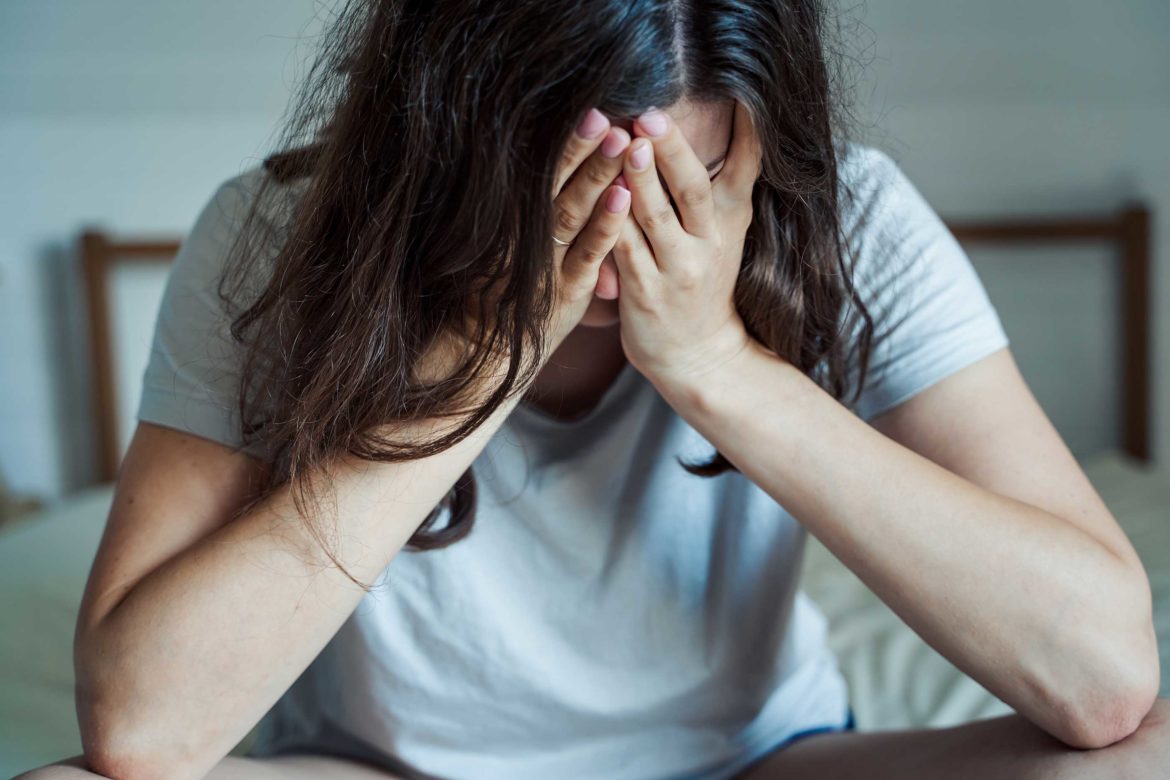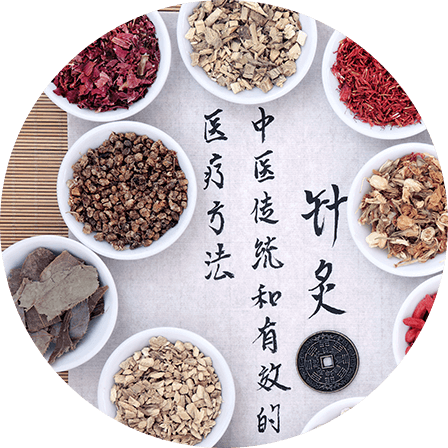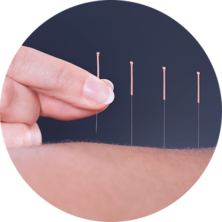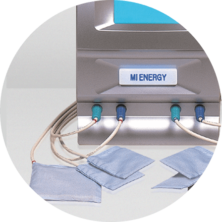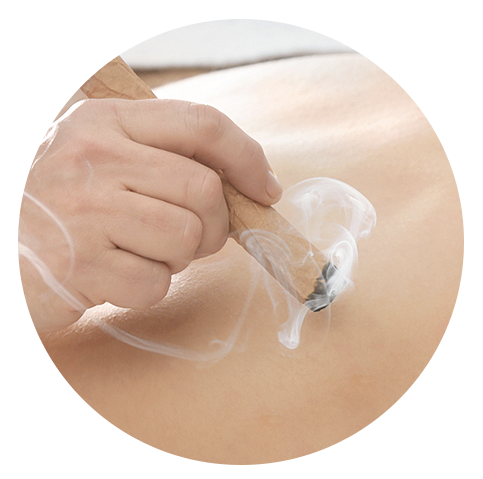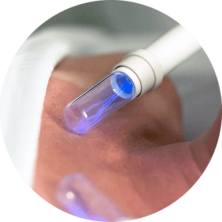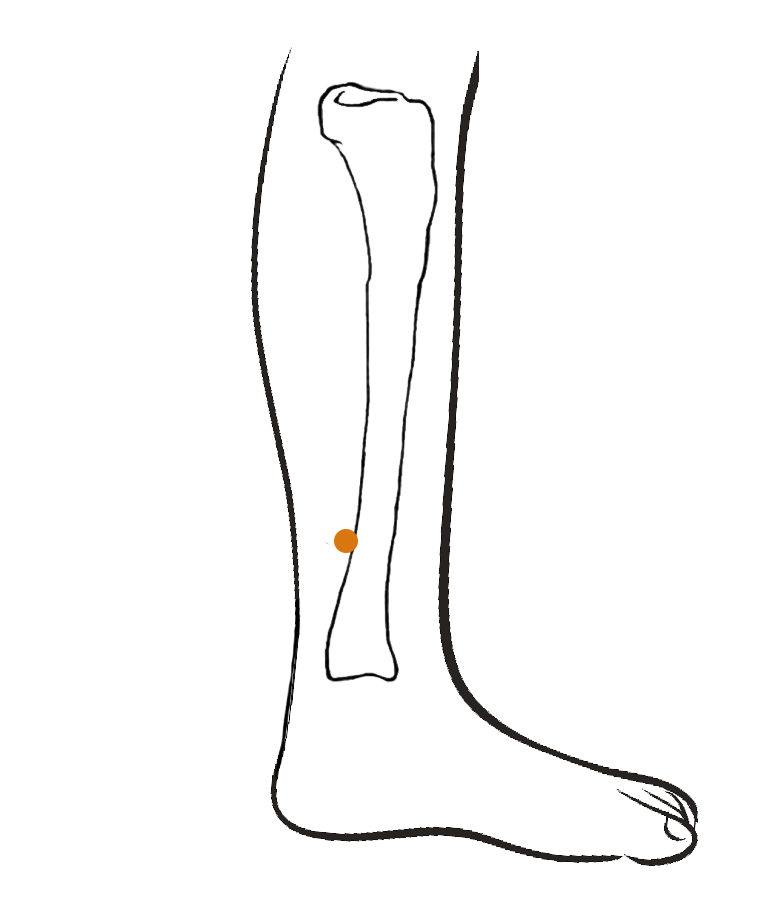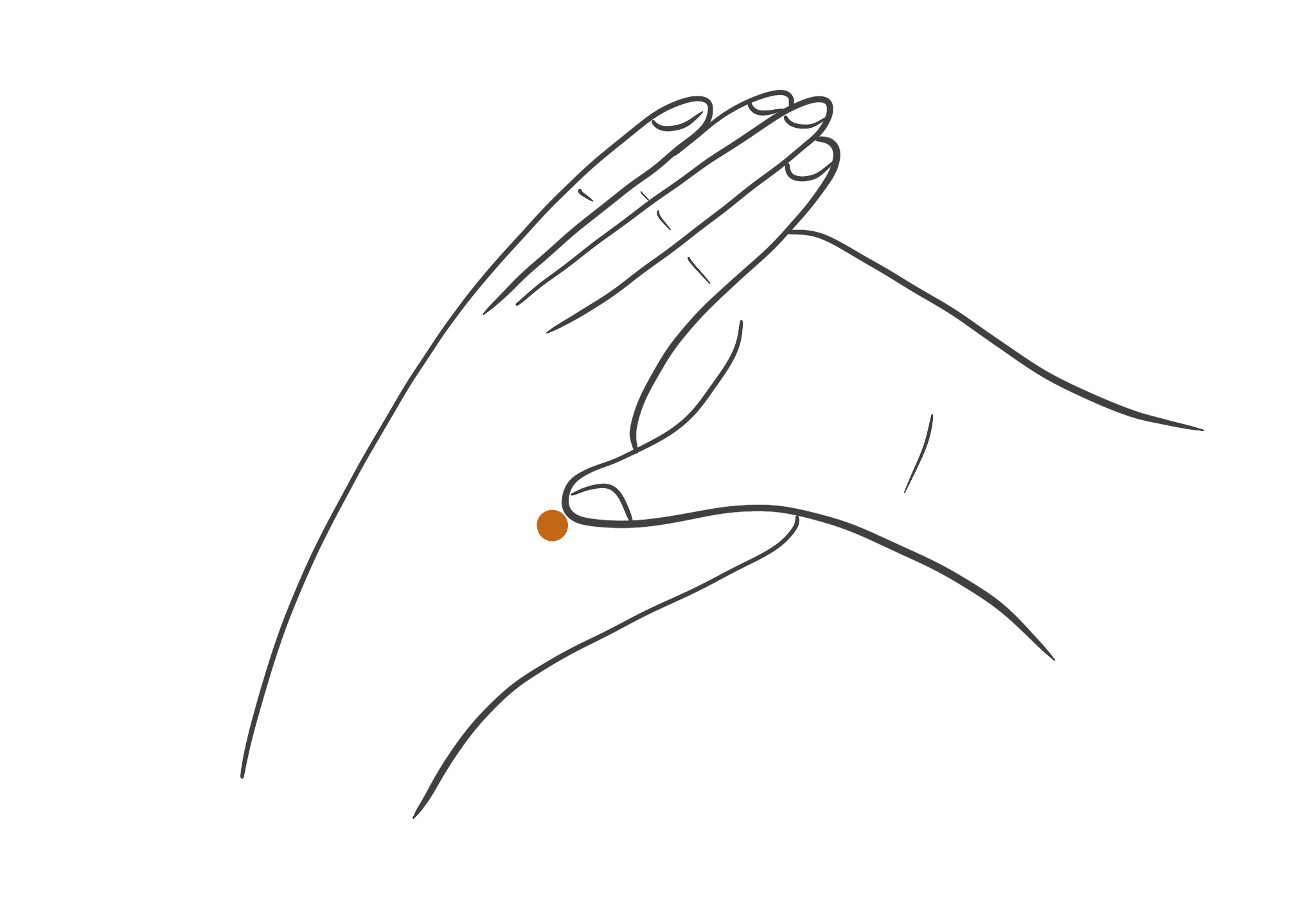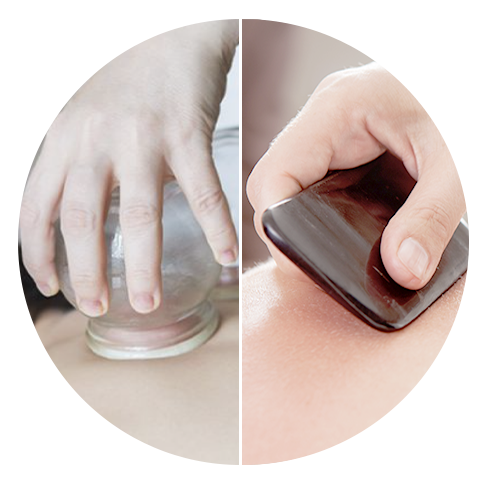Do you feel easily irritable, anxious or uninterested in life? If so, you may be experiencing stress. Stress refers to a state of mental or emotional strain or tension resulting from adverse or demanding circumstances. Short-term stress may be caused by temporary work or lifestyle factors but if left unchecked, it can lead to other chronic conditions or even suicidal feelings.
A 2019 Cigna 360 Well-Being Survey reported that a staggering 92 percent of the working population in Singapore is stressed. This number is 8 percent higher than the global average at 84 percent. [1]
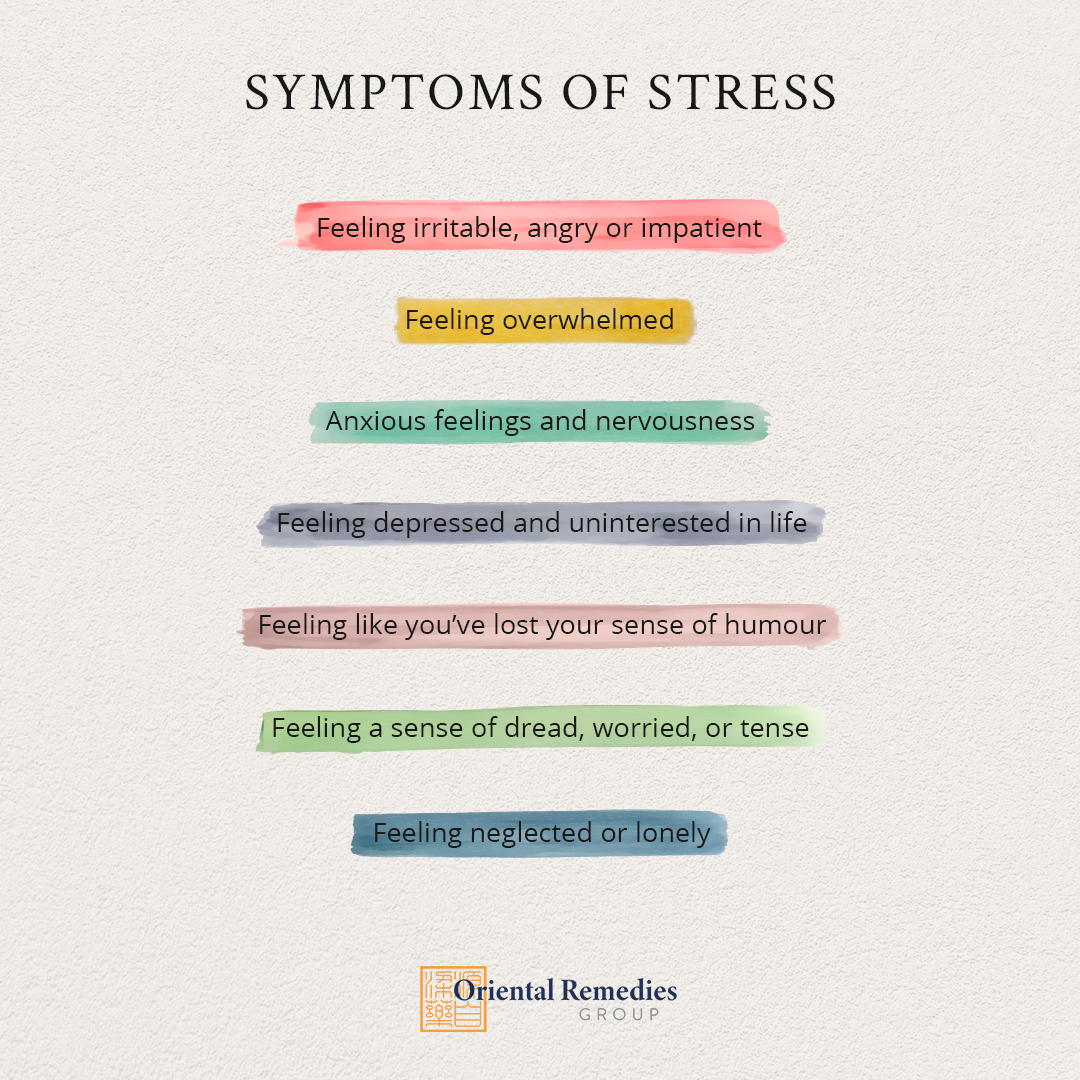
Stress in terms of TCM
According to TCM theory, stress causes stagnation of Qi and Blood in the body, mainly affecting the Liver, the Heart and the Spleen.
Stress most commonly causes Liver Qi stagnation. In TCM, the Liver is related to our muscles and tendons, our emotional health, and the menstrual cycle for women. As such, some of the symptoms of Liver Qi stagnation includes rigid and sore muscles, moody and depressed feelings and even irregular periods or period cramps during menstruation. The stagnation of Liver Qi may also turn into Liver Fire, which results in irritability and frequent headaches.
Qi and Blood stagnation along the Heart meridian may also affect the circulatory system, causing palpitations, high blood pressure and a risk of coronary heart disease. As the Heart governs our mental activities, one may also experience irritability and restlessness.
When Qi Stagnation affects the Spleen meridian which governs our digestion, it may result in symptoms like abdominal bloating, reduced appetite and stomach cramps. As our Spleen is also in charge of digesting water, weakened Spleen function may also cause an accumulation of Dampness in the body, resulting in fatigue, heaviness in the body and loose stools.
5 common health ailments due to chronic stress and how TCM can help
- Anxiety/Depression
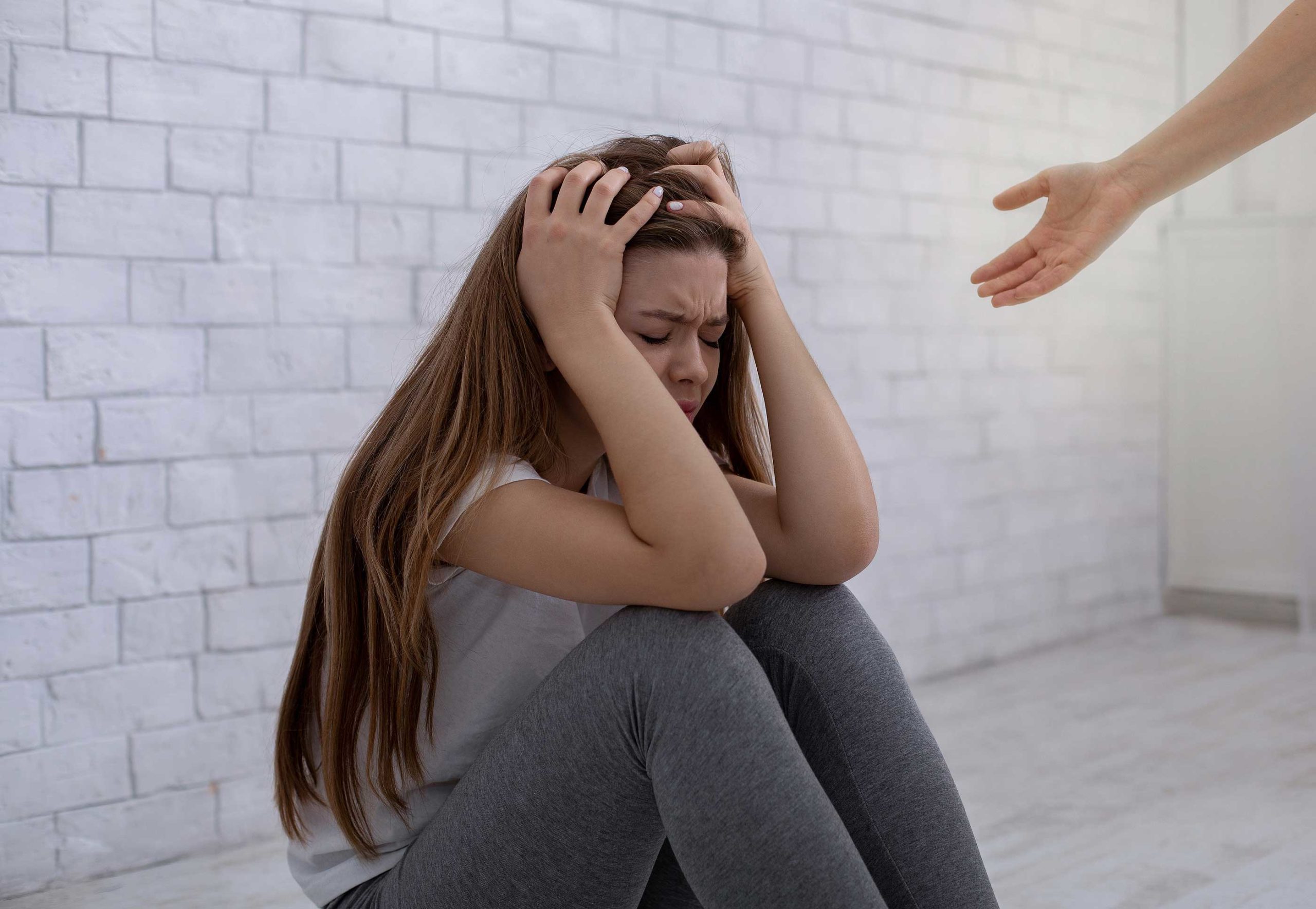
Chronic stress causes mood fluctuations that can easily lead to anxiety or depression. In TCM, anxiety and depression is often related to the abnormal flow of Qi. In patients with anxiety, there is excessive upwards flow of Qi while in patients with depression, there is an excessive sinking of Qi. While their symptoms may be opposite in nature, anxiety and depression often come together. As such, balancing the flow of the Qi is key to relieving anxiety/depression. Here are some in-clinic treatments and therapies to help:
TCM herbs help to reduce severity of symptoms by encouraging the correct flow of Qi within the body. Combined use of herbs like Chuan xiong and Chuan niu xi can help to guide the effect of herbs upwards while bringing down the upward movement of the Qi. Herbs like Mei gui hua (Rose) and Man jing zi (Chaste Tree Fruit) can help to soothe the flow of Qi and protect the digestive system. Using these herbs with personalised formulas allow us to better target our patients’ conditions so they can feel better faster.
Acupuncture can improve Qi circulation in our body and alleviate Liver Qi stagnation which is often associated with stress. One example of an acupoint that improves Qi circulation is Tai Chong. Achieving optimal Qi circulation is key to ensuring balance in our emotions and preventing violent mood fluctuations.
Studies have shown that anxiety and depression are often associated with an imbalance in our autonomic nervous system. [2,3] The Autonomic Nervous System governs our stress response and comprises the Sympathetic Nervous System (Flight-or-Fight System) and the Parasympathetic Nervous System (Rest System). Chronic stress results in either of the two systems being triggered in excess or insufficiently, which leads to symptoms of anxiety and depression.
Research shows that negative ions balances the autonomic nervous system via regulating brain activity and activating neurons. [4] The places with the highest concentration of negative ions are the waterfall and the forest. At ORG, our Cell Pro Therapy (CPT) makes use of Japanese technology to deliver a high concentration of negative ions into your body. The process lasts about 15-20 minutes and is completely painless. Our patients find the treatment relaxing and that consistent use alleviates their mood and increases their stress tolerance.
You can also try tapping exercises at home:
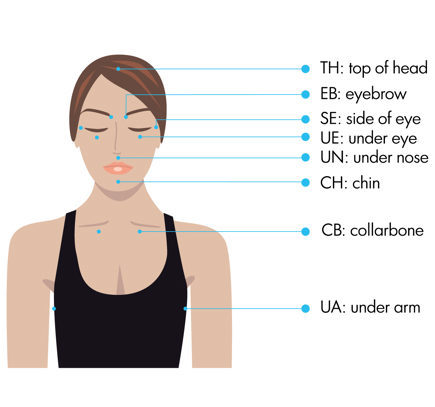
Emotional Freedom Technique (EFT), also known as tapping, can create a balance in energy and is a common alternative treatment used to treat people with anxiety. [5] Similar to acupuncture, EFT focuses on meridian points.
Directions: Tap the following points 7 times each in order
1. Top of the head – directly in the center of the top of the head
2. Beginning of the eyebrow
3. Side of the eye – on the bone at the outer corner of the eye
4. Under the eyes – on the bone under the eye, approximately 1 inch below the pupil
5. Under the nose – the point between the nose and upper lip
6. Chin point – halfway between the underside of the lower lip and bottom of the chin
7. Beginning of the collarbone – the point where the breastbone (sternum), collarbone and first rib intersect
8. Under the arm – at the side of the body, approximately 4 inches below the armpit
- Insomnia
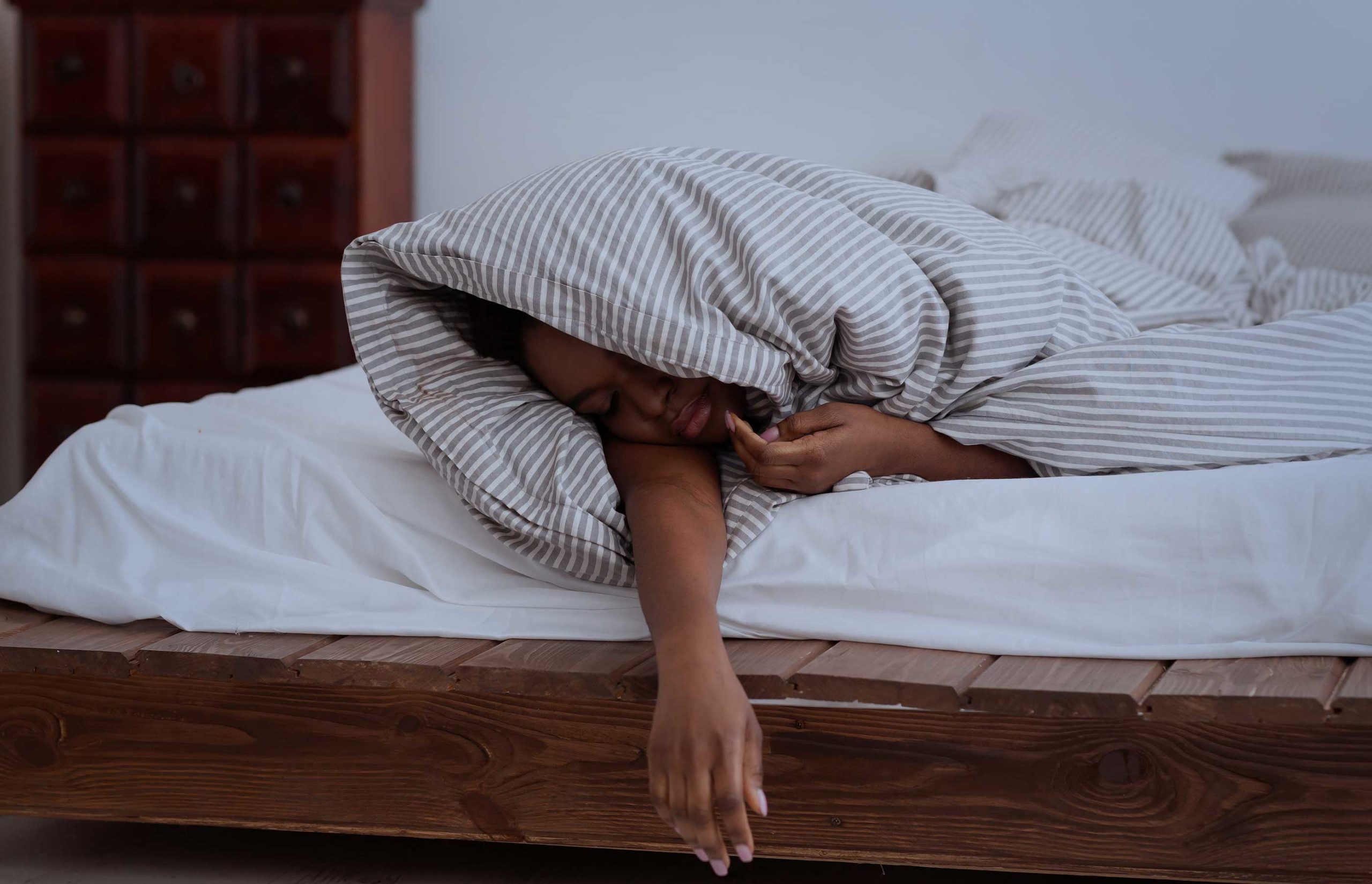
Insomnia – the inability to have restful sleep, comes in various forms. Some experience difficulty falling asleep, while others tend to have light or disrupted sleep. In TCM theory, insomnia is caused by an imbalance of Yin and Yang energy in the body. Having a stressful lifestyle causes an excess of Yang energy while overexertion and natural ageing results in depleted Yin energy. The result is usually an excess of Yang energy which causes a state of hyperarousal and thus affecting our sleep. As such, rebalancing the Yin-Yang energy in our body is key to treating insomnia.
Acupuncture is one of the most common treatments of insomnia, with little side effects. It does so by using different acupoints to achieve Yin-Yang balance. For example, San Yin Jiao (translated as Three Yin Meridians) is used to boost Yin energy, while the Guan Yuan and Qi Hai acupoints are often used together to increase Yang energy. Other acupoints like An Mian (translates to calm sleep) promote restful sleep and have a calming effect. According to sources [6], acupuncture may increase melatonin, a hormone that makes you sleepy. Others theorise that acupuncture enhances blood flow to certain sleep-inducing regions of the brain. Most of our patients experience a calming effect during the treatment, with some even managing to sleep throughout.
TCM herbs can also treat insomnia effectively by addressing underlying imbalances. If you have trouble falling asleep at night because your brain feels awake or are constantly worrying, you may be suffering from Heart and Liver fire. These patients tend to feel hot and irritable at night due to excess Heat in the body. Heart and Liver Fire-purging herbs like Xia Ku Cao and Bai He can alleviate heat in the body and calm your mind for a good night’s sleep. If you are able to fall asleep but tend to wake up in the middle of the night, you may be Blood-deficient. This happens naturally in most people due to ageing, which is why older people tend to wake up early naturally. For these patients, nourishing the Blood with herbs like Suan Zao Ren and Dang Gui is key to improving their sleep quality.
Negative ions have also been found to have a significant effect on sleep quality. One study found that patients fell asleep faster, and slept deeper and longer with the help of negative ions. [7] Patients that experience insomnia as a consequence of stress will benefit most from Cell Pro Therapy (CPT) due to its ability to rebalance the autonomic nervous system.
To help improve sleep issues, you can try supplements like Sleep Essentials:
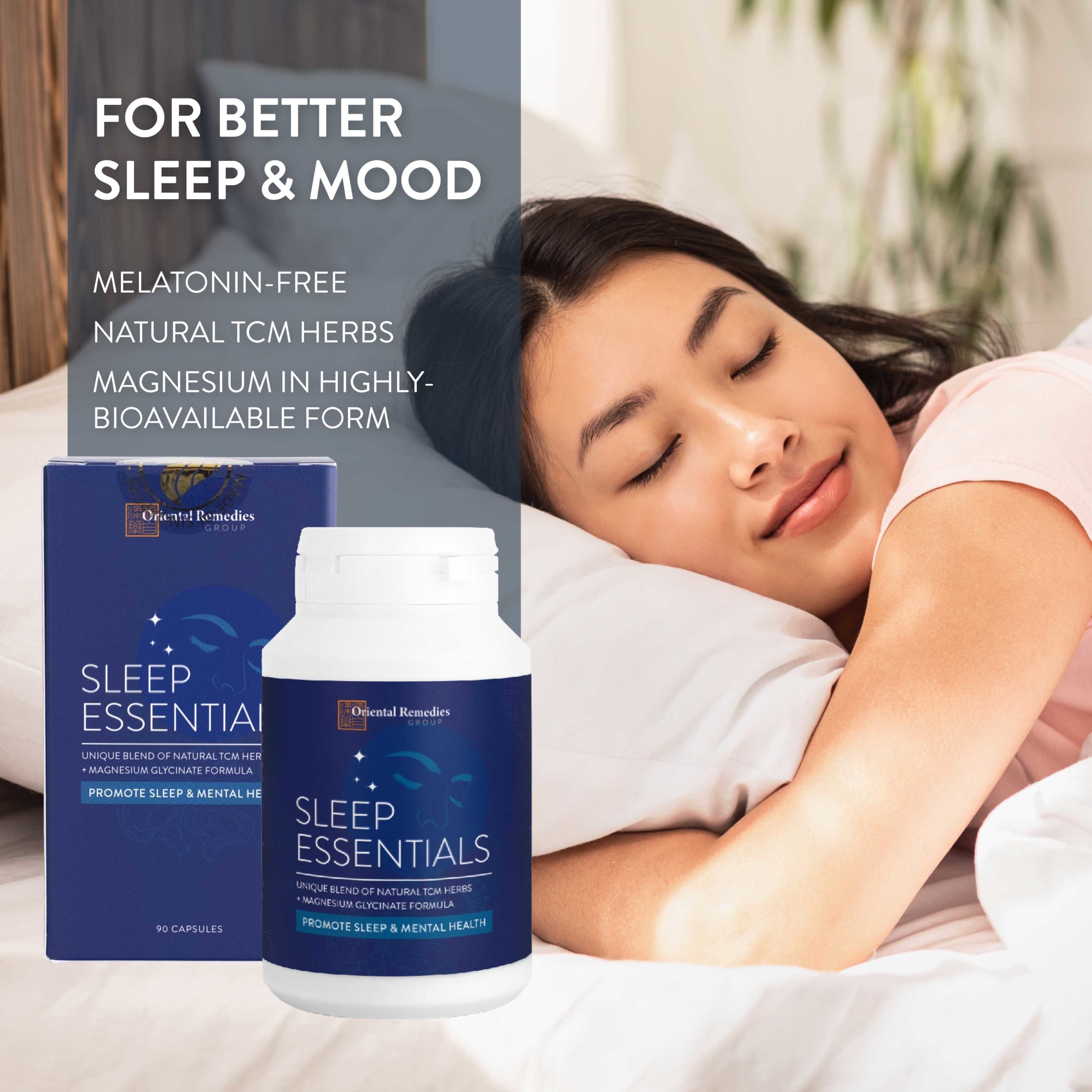
Sleep Essentials by Oriental Remedies store is a TCM supplement specially formulated for better sleep and stress relief. TCM herb Semen Ziziphi Spinosae (Suan Zao Ren) targets the root cause of insomnia by balancing Heart Yang and Liver Yin, while Magnesium Glycinate and Vitamin B complex work together to reduce stress and promote better sleep. 5-HTP can be converted to Serotonin, a happy brain chemical, and Melatonin, a sleep-inducing chemical, to boost mood and improve sleep quality.
- Digestive issues
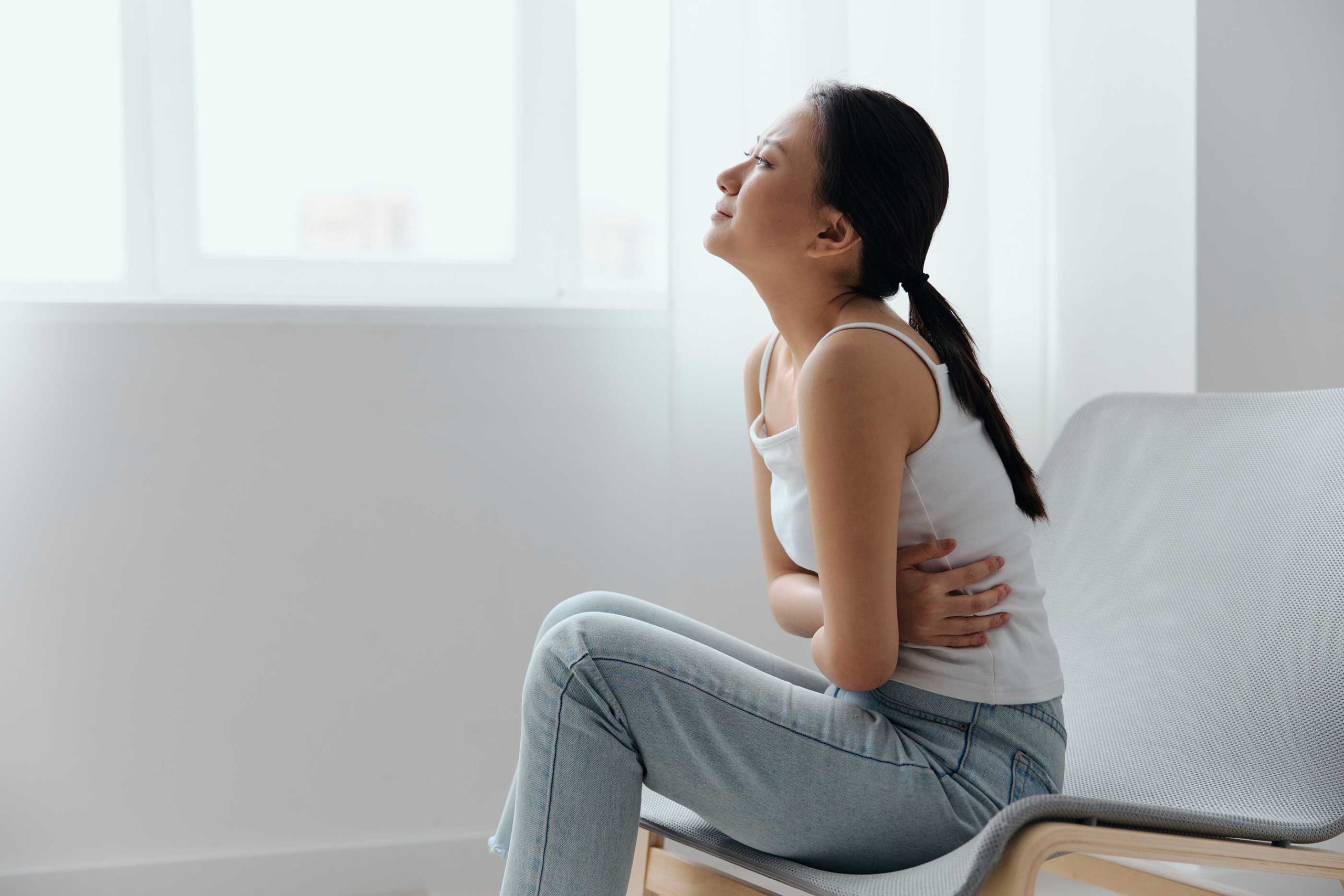
In TCM theory, Liver Qi stagnation caused by stress can affect the Spleen which is in charge of digestion. This is why you may feel a lack of appetite or even tummy ache and indigestion when you are nervous or stressed. As such, in tackling digestive issues caused by stress, we seek to nourish the Spleen and improve Liver Qi circulation.
TCM prescriptions like Chai Hu Shu Gan Tang contain herbs that can alleviate mood and soothe digestive discomfort by improving Liver Qi congestion and Spleen function. Herbs like Zhi Shi and Zhi Qiao help to reduce bloating by promoting Qi circulation, while Shao Yao Gan Cao Tang is commonly used to soothe stomach discomfort. If you suffer from bowel irregularity (constipation or loose stools) due to stress, Xiao Yao San is commonly used to alleviate these symptoms by promoting Liver Qi circulation and nourishing the Spleen and the blood.
Acupuncture is a quick and effective way of promoting Qi circulation and alleviating digestive problems. Acupoints like Tai Chong, He Gu, and Qi Men improves Qi circulation, while Zhong Wan, Liang Men, and Tian Shu helps to nourish the Spleen and promotes regular bowel movements.
If you suffer from loose stools, slow digestion, and do not gain weight easily, then you may have Spleen Qi deficiency. Moxibustion is a painless and effective way of nourishing Spleen Qi while also warming the body, perfect for patients who have cold body constitution (being scared of the cold, having cold hands and feet).
At home, you can also try Gut Essentials by Oriental Remedies Group to improve your gut health:

Studies have shown that stress can directly affect our gut health through hormonal imbalances, inflammation, and changes to the autonomic nervous system. [8] Having a healthy gut is crucial for not just our digestive health, but also our immune health, mental health and skin health. Gut Essentials is a synbiotic blend of 4 Probiotic strains and 3 types of Prebiotics to restore balance to our intestinal microbiome. Prebiotics help to enhance the growth and variety of good gut bacteria.
- Menstrual health
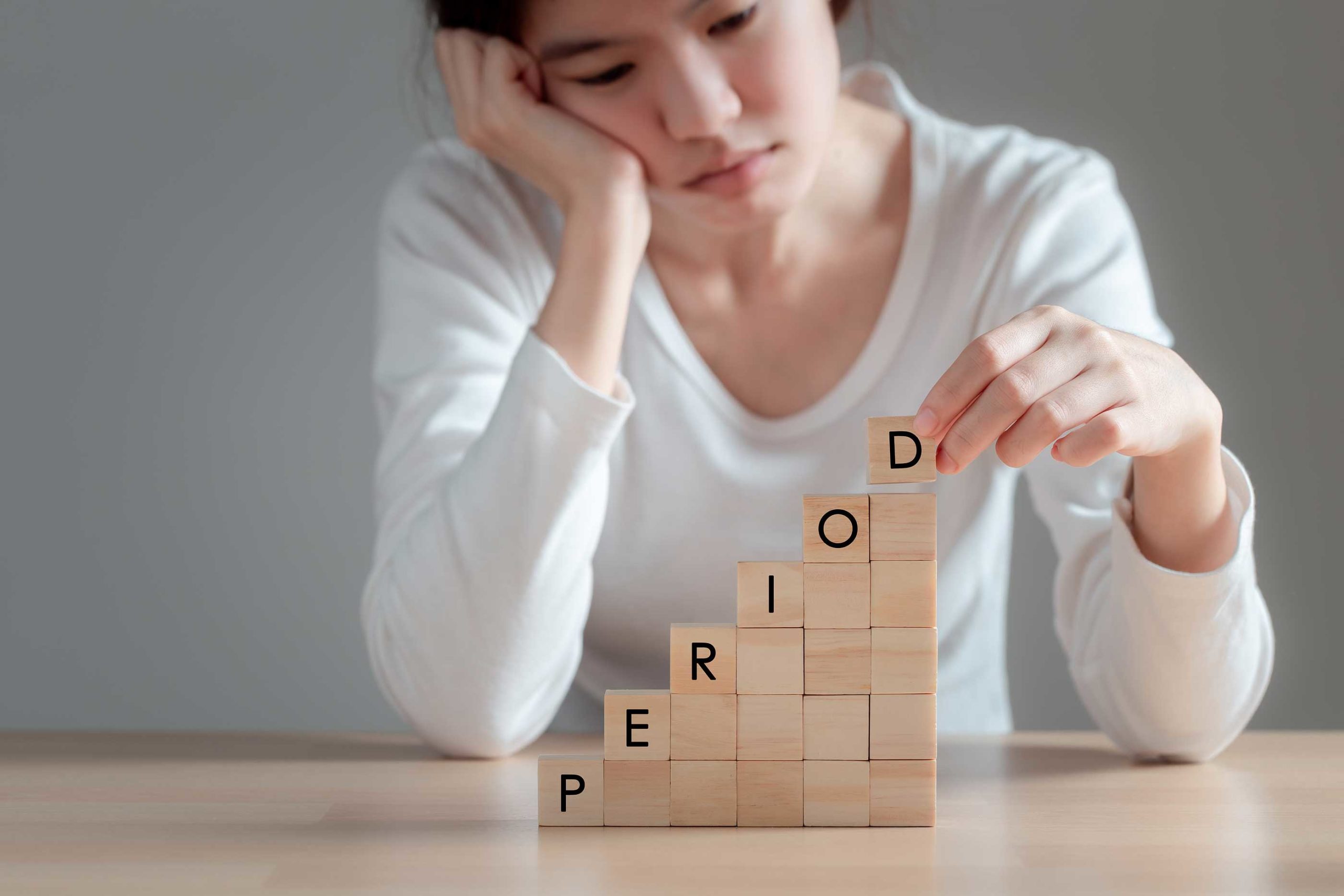
Since the Liver governs our menstrual health, Liver Qi stagnation caused by stress can disrupt our menstrual cycle and cause us discomfort as well. Common symptoms include irregular periods, painful menstrual cramps, and even excessive bloating and breast distension.
The first line of treatment for stress-related menstrual issues is TCM herbs as the key is to correct the underlying Qi and Blood imbalance. In TCM theory, we believe that “不通则痛”, or that stagnation causes pain. Liver Qi stagnation may cause poor blood circulation, which in turn results in abnormally painful period cramps. TCM herbs Tao ren and Hong hua are commonly used to activate blood circulation while Yan hu suo provides rapid relief for abdominal discomfort. Xiang fu and Mu xiang are Qi-moving herbs that are commonly used to relieve breast distension and stomach bloating respectively.
Acupuncture can help to correct irregularities in period frequency and duration. Acupoints like He gu and Tai chong are coupled together to increase Qi and Blood circulation, while Guan yuan and Qi hai increases blood circulation and nourishment towards the womb area. San yin jiao nourishes the Liver, Spleen and Kidney Yin to improve period regularity.
Electro-Lymphatic Therapy (ELT) is a gentle and non-invasive therapy that helps to stimulate proper flow and drainage of the lymphatic system, simulating the effects of a lymphatic drainage massage of tuina without the pain and pressure. For patients experiencing chronic stress, the poor Liver Qi circulation tends to cause excessive blood clots in the body due to blood stagnation. These blood clots cause inflammation in the womb and result in abnormal period pain. As inflammation travels through the lymphatic system, ELT can help to relieve period cramps and “dissolve” blood clots by flushing excessive inflammation and other toxins out of our body.
To improve Liver Qi circulation, you can try these easy acupressure massages at home:
|
San Yin Jiao
|
Purpose: Nourish Spleen, Liver, and Kidney Yin to regulate menstrual cycle Location: On the inner side of the lower leg, four fingers above the ankle Directions: Press firmly for 1 minutes each time, up to 3 times a day. |
|
He Gu
|
Purpose: Provide pain relief for cramps by regulating Qi and Blood circulation Location: On the back of hand, sore point between the first and second finger bone Directions: Press firmly for 1 minutes each time, up to 3 times a day. |
Studies have shown that drinking ginger tea can help with period pain, while brown sugar helps to tone down the spiciness and aids with digestion [9]. Try this easy recipe to help relieve the above symptoms:
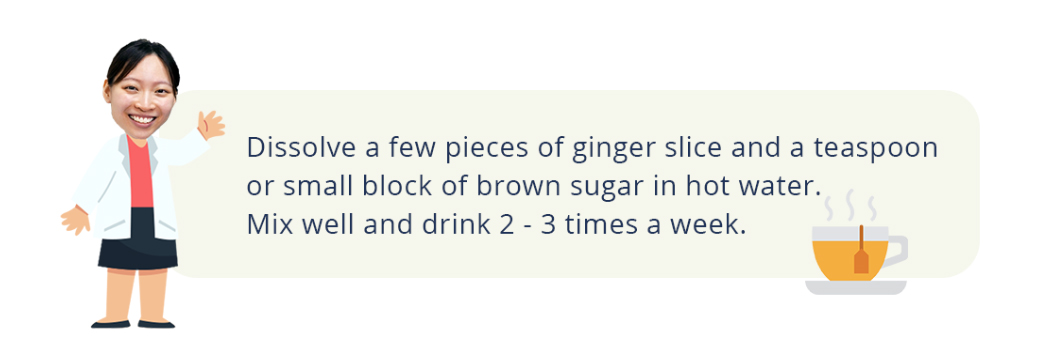
Moderate exercise can help with menstrual regularity and period cramps, while certain yoga poses like the Child’s Pose can help provide relief for cramps and lower back pain. [10] Exercising and yoga can also encourage us to practice mindfulness, lift our spirits, and grant us respite from chronic stress.
- Stiff neck and shoulder
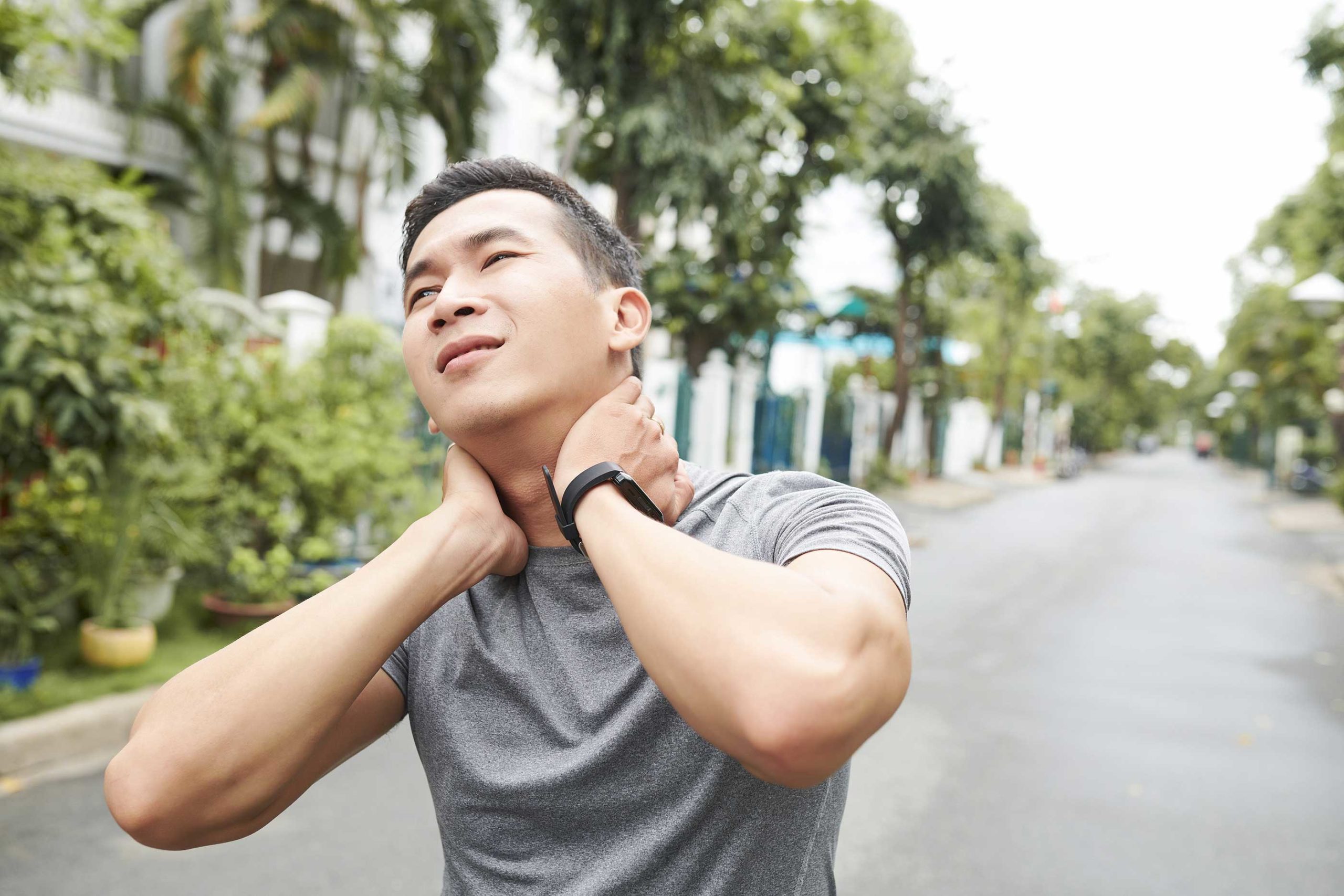
Did you know that tension and tightness in your neck and shoulders is a common symptom of chronic stress? It is a sign that your body is tensed up to prepare you for any perceived threat. In other words, it’s a part of our body’s “fight-or-flight” stress response. If left untreated, stiffness in the neck and shoulder can cause further stress to the body by affecting sleep and productivity.
Acupuncture in the neck and shoulders can provide rapid relief by triggering blood flow to the area and promoting muscle relaxation.
For patients that are scared of needles, cupping and Gua Sha can also provide relief for stiff neck and shoulders. Both treatments are similar to a deep tissue massage that can promote muscle relaxation and recovery. Fire cupping is warm in nature and suitable for patients with cold body constitution (cold hands and feet, constantly scared of cold), while Gua Sha can dissipate bad Heat for patients suffering from Heatiness (bad breath, sore throat, dry mouth or constantly thirsty).
For a completely painless experience, patients can try ELT which helps to relieve neck and shoulder stiffness by promoting lymphatic drainage and clearing congestion in the area. Patients feel instant relief in their neck and shoulders and even feedback that they sleep better afterwards.
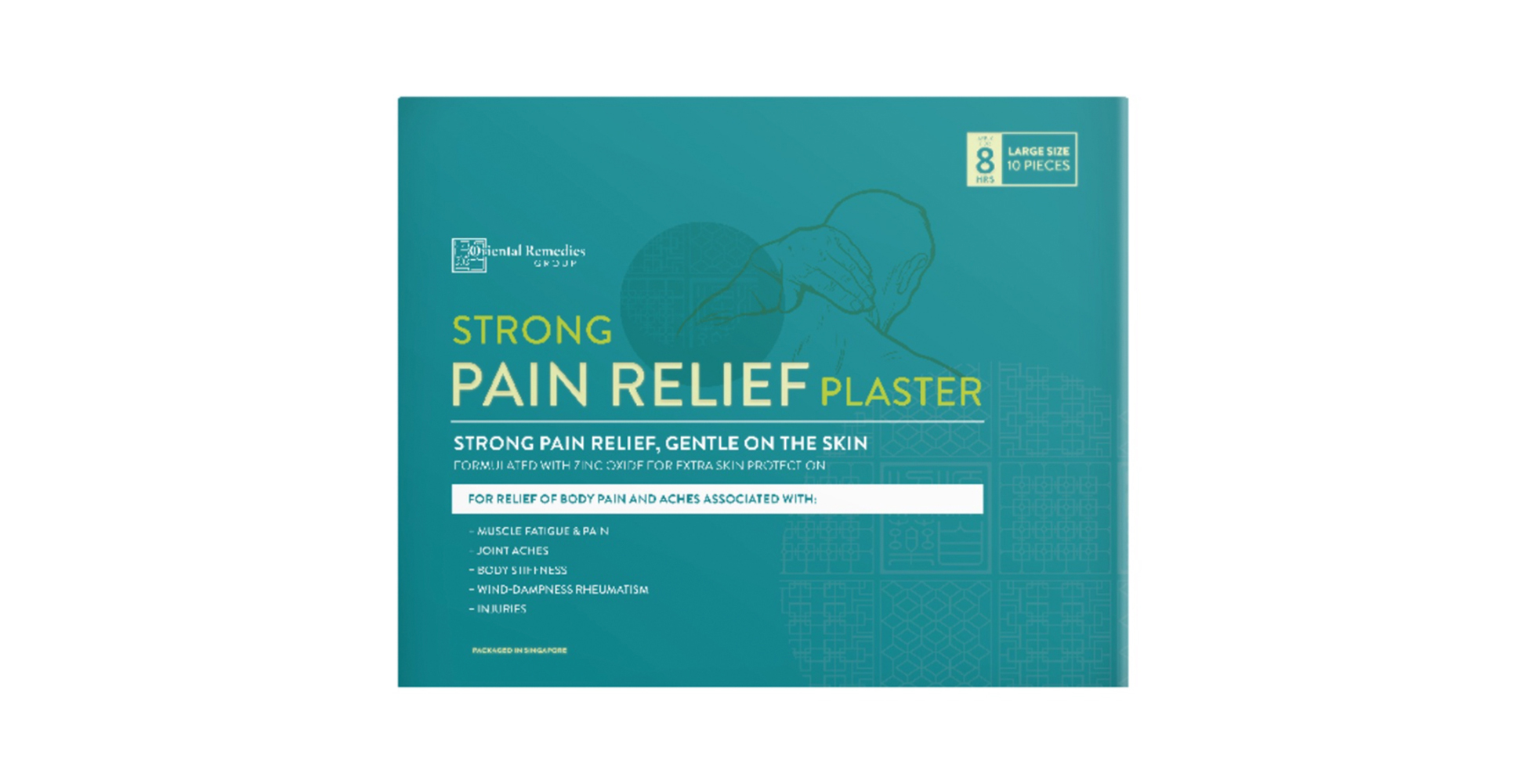 For the busy bees, Strong Pain Relief Plaster is a quick fix for your neck and shoulder stiffness whenever you need it. Formulated with TCM herbs Frankincense, Myrrh and Menthol, it provides rapid pain relief, soothes body ache and improves blood circulation. Zinc oxide, an ingredient commonly used in sunscreen and body lotion, protects the skin and prevents the plaster from sticking excessively and damaging the skin.
For the busy bees, Strong Pain Relief Plaster is a quick fix for your neck and shoulder stiffness whenever you need it. Formulated with TCM herbs Frankincense, Myrrh and Menthol, it provides rapid pain relief, soothes body ache and improves blood circulation. Zinc oxide, an ingredient commonly used in sunscreen and body lotion, protects the skin and prevents the plaster from sticking excessively and damaging the skin.
Lastly, take note of your posture. When we are working for long hours, we often lose track of time and don’t pay enough attention to our posture. Poor posture can worsen stiff neck and shoulders and even lead to neck sprains in some situations. As such, it is important to stand up and do neck and shoulder stretches at 1-2 hours intervals. A simple stretch to do is to bend your neck sideways, diagonally in front, then diagonally backwards to stretch the different muscles of the neck. Hold for 15 seconds in each direction and finish off the stretch by bending your neck forward to stretch the upper back and shoulder muscles at the end.
Your healing is the most important!
In our fast-paced and post-pandemic society, stress is inevitable. It is important to recognize that stress can come from many different sources – work stress, personal life stress and even health-related stress. Everyone experiences stress in different levels, so it is important to acknowledge its existence and learn to cope with our daily stressors. Many reach out to meditation, therapy, or exercise as a form of coping mechanism. However, these may not work for or be sufficient for everyone. If you or anyone around you are experiencing stress beyond what you can handle, we strongly advise you to reach out to a medical professional for help.
Consult our friendly physicians at +65 8087 0486 today to find out how TCM can help you manage stress based on your body condition.
—–
This article is written by Physician Foo Shan Ju.
Physician Foo Shan Ju (Oriental Remedies Group, Singapore), a registered TCM physician certified by the Traditional Chinese Medicine Practitioners Board (TCMPB).
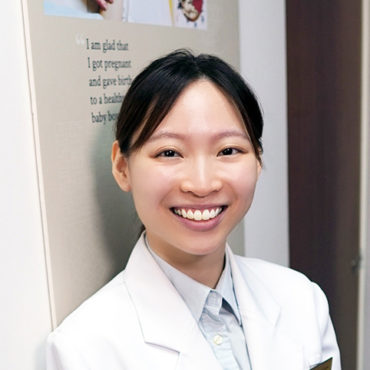
Note: All words in Italics refer to the TCM organ-system and not the anatomical organ referenced in western medicine.
Disclaimer:
The information on this page is for information and educational purposes only. Such medical information may relate to disease, injury, drugs and other treatments, medical devices and/or health products. Medical information does not amount to advice, and if advice is needed an appropriate professional help should be sought. The disclaimer asserts that no warranties or representations are given in respect of the medical information, and that the website operator should not be held liable if a user suffers any injury or loss after relying upon the medical information.
All wellness assessments and technology-enhanced therapies using wellness device(s) are intended for use only for general well-being purposes or to encourage or maintain a healthy lifestyle, and it is not intended to be used for any medical purposes (such as detection, diagnosis, monitoring, management or treatment of any medical condition or disease). Any health-related information provided by these devices should not be treated as a medical advice. Please consult a physician for any medical advice required.
Please consult a physician for any medical advice required.
References:
[1] Cigna. (2019). 2019 Cigna 360 Well-Being Survey: Well & Beyond.
[2] https://www.ncbi.nlm.nih.gov/pmc/articles/PMC5050399/
[5] https://www.medicalnewstoday.com/articles/326434
[6] https://pubmed.ncbi.nlm.nih.gov/14990755/
[7] https://www.sciencedirect.com/science/article/pii/S1877705817348774
[8] https://www.ncbi.nlm.nih.gov/pmc/articles/PMC7213601/
[9] https://www.thieme-connect.com/products/ejournals/html/10.1055/s-0039-1700705
[10] https://www.reproductivemedicine.com/feature/2008/feature052008.php

